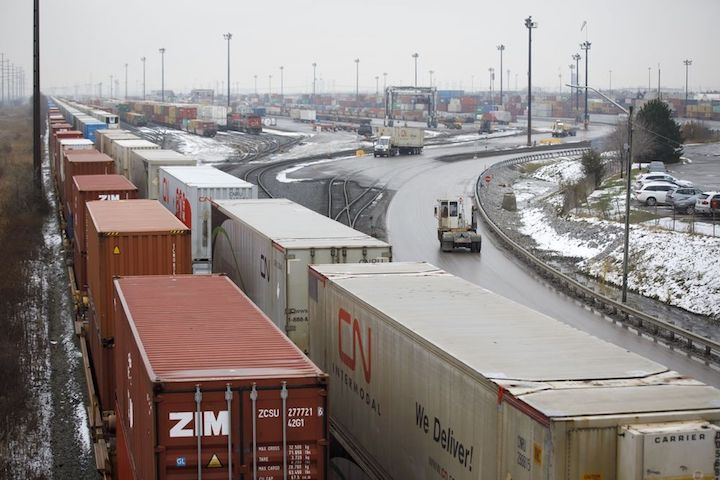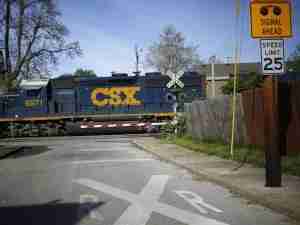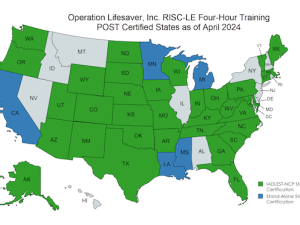Pressure is mounting on Canadian Prime Minister Justin Trudeau to take action to end a railway strike that’s curtailing shipments from one the world’s biggest exporters of raw materials.
More than 3,200 conductors and yard operators walked off the job at Canadian National Railway Co. on Tuesday, disrupting cargo in a country that relies heavily on two main rail companies to transport oil, grain and consumer goods from its inland Prairies for export to the U.S. and the world.
Parliament is on hiatus until Dec. 5 after Trudeau swore in a new cabinet on Wednesday, but industry groups and the Alberta government, home to the country’s oil sands, are pushing the government to move more swiftly to end the first strike in a decade at Canada’s largest railway. Trudeau is already facing rising tensions in Alberta as the province struggles with a pipeline bottleneck that has seen investments slump.

“We urge the government of Canada to immediately recall Parliament to introduce emergency back-to-work legislation for CN rail workers,” Alberta Energy Minister Sonya Savage and other ministers said in a letter to federal Labour Minister Filomena Tassi. “Waiting until the planned recall of Parliament on Dec. 5 would have devastating impacts on the Canadian economy.”
The Teamsters Canada Rail Conference union has been without a contract since July and walked out over issues including working conditions and drug benefits.
Canadian Transport Minister Marc Garneau indicated the government would prefer a negotiated settlement as representatives from CN Rail and the union continued to bargain in Montreal.
“We’re going to push them as hard as we can because this is very important from the economy’s perspective,” Garneau said in Ottawa on Wednesday. “We also believe in the collective bargaining process, so we’re going to make sure that they know how important this is and that they have to continue working toward a solution, which is, I say, we think is within their grasp.”
Arbitration Offer
In a statement Thursday, CN Rail Chief Executive Officer Jean-Jacques Ruest said that to reduce the impact of the strike the company offered the union binding arbitration. The Teamsters have rejected that option.
“We remain committed to working with the union and the mediators in order to reach an agreement that is fair to all parties,” he said in a statement. “We have also taken reasonable steps to end the economic impact by offering binding arbitration with a neutral arbitrator chosen by the parties or appointed by the federal government.”
Canadian crude dropped on Tuesday, and slid again Thursday morning after strengthening Wednesday. Western Canadian Select crude’s discount to West Texas Intermediate futures was at $18.90 a barrel Thursday morning. Shares of CN Rail have declined 3.6% this week.
Crude Bottlenecks
The strike comes at a difficult time for crude producers, who were set to boost rail shipments of oil after Alberta’s government eased production limits for companies shipping by train. It also coincides with crop harvests, heightening competition for rail space among numerous commodity producers.
Crude-by-rail volumes have largely halted as CN Rail prioritizes shipments of perishable goods such as grain amid a shortage of workers, according to people familiar with the matter.
“The issue becomes prominent very quickly in terms of oil backing up into storage,” Mike Walls, an analyst at Genscape Inc., said by telephone. “Western Canada is so sensitive to any takeaway disruptions.”
Some of the big oil producers like Suncor Energy Inc. have contingency plans to deal with train disruptions.
“We have a vast logistic network which we are able to tap into during this time,” Sneh Seetal a representative for the Calgary-based company, said in an email.
Petroleum and chemicals account for 20% of CN Rail’s revenue, followed by grain and fertilizer with 16%. The strike doesn’t include workers in the U.S., where CN Rail operates a rail line from Chicago to New Orleans.
Harvest Time
About half of Western Canada’s grain elevators are on a CN line, according to the Western Grain Elevator Association. The railway shipped 180,000 barrels a day of oil in September, according to its earnings call.
Capotex, the marketing arm for potash companies Nutrien Ltd. and Mosaic Co., said it relies heavily on CN Rail to move potash to its terminal in Vancouver. The Forest Products Association of Canada said its industry is responsible for 10% of the total tonnage transported through Canada’s railways.
“While FPAC respects the collective bargaining process, and the right of workers to go on strike, we are concerned about the devastating economic impacts this dispute will have on our industry, which is already facing significant headwinds, not to mention the impacts on forestry families and communities.”
Economic Impacts
The average duration of transportation-related strikes within federal jurisdiction over the past five years has been 15 days, according to data from Statistics Canada.
Railway strikes can have significant effects on the economy, and that’s why the CN dispute is likely to get resolved quickly, said Philip Cross, a senior fellow at the Macdonald-Laurier Institute in Ottawa. Even if the government isn’t in session to pass legislation, it can threaten the parties to strike a deal.
“For the Prairies and a lot of manufacturers in Central Canada, this is the most efficient way of getting goods to market,” Cross said in an interview. “When you take that away, it’s going to have a significant impact which is why these things are rarely allowed to go on for very long,” Cross said.







